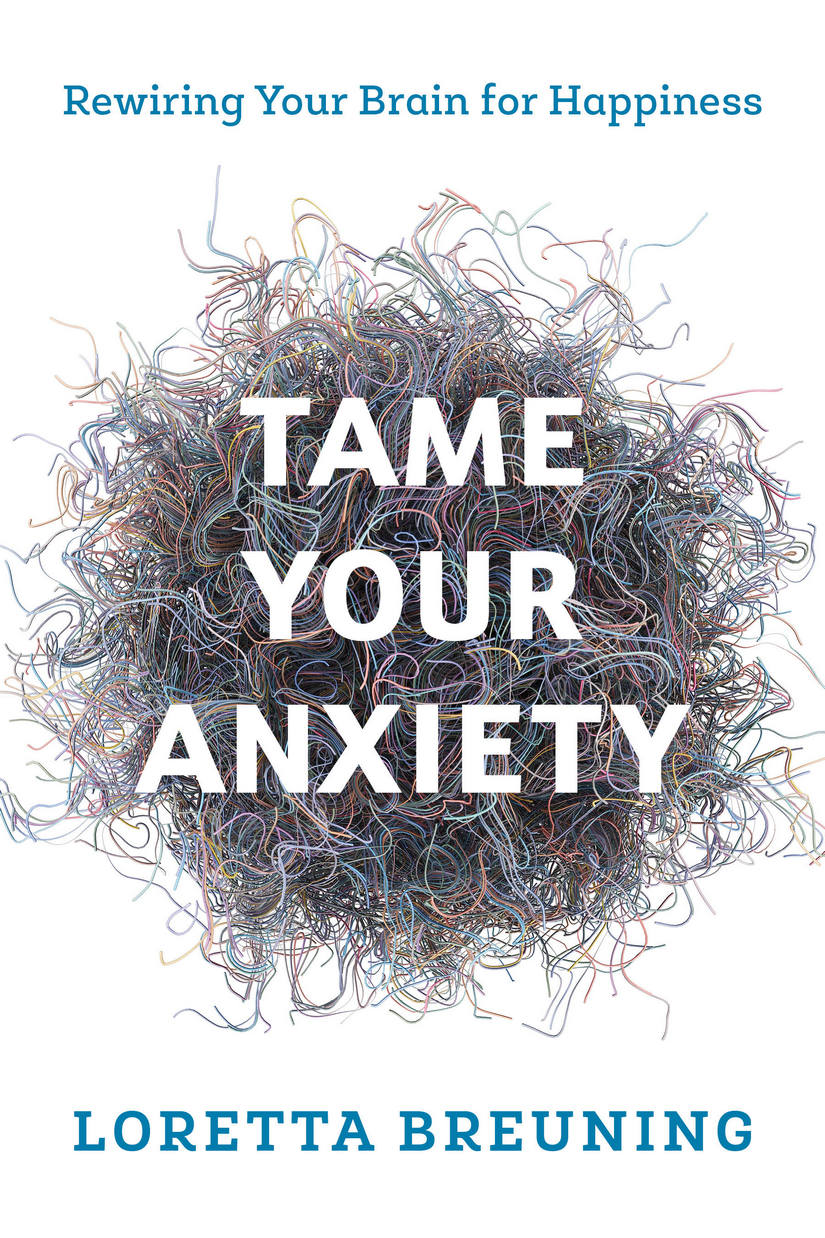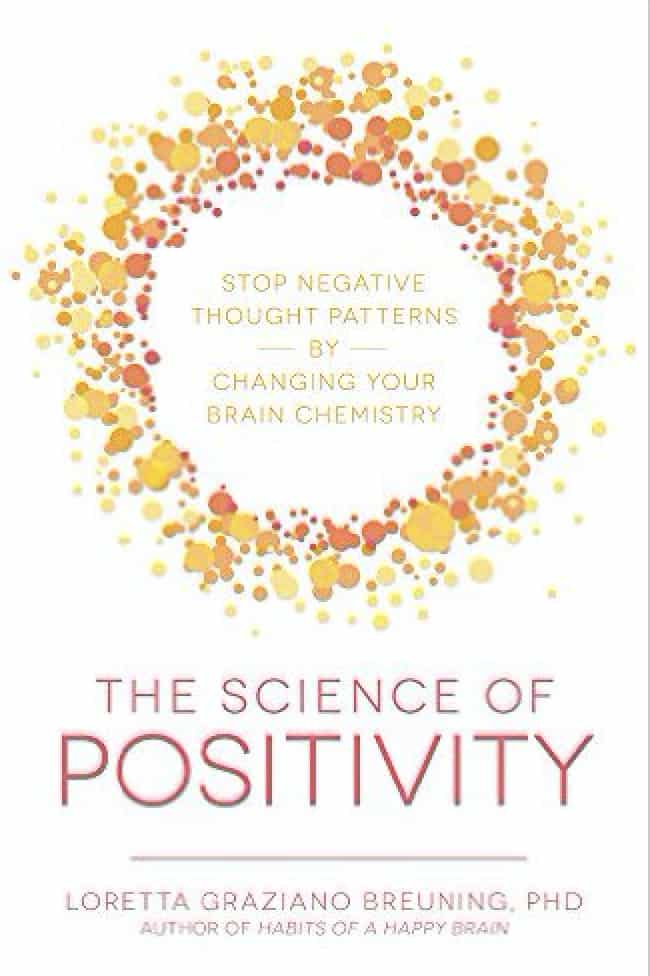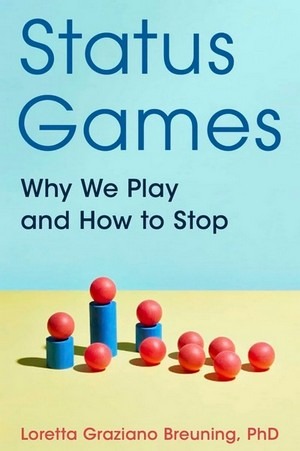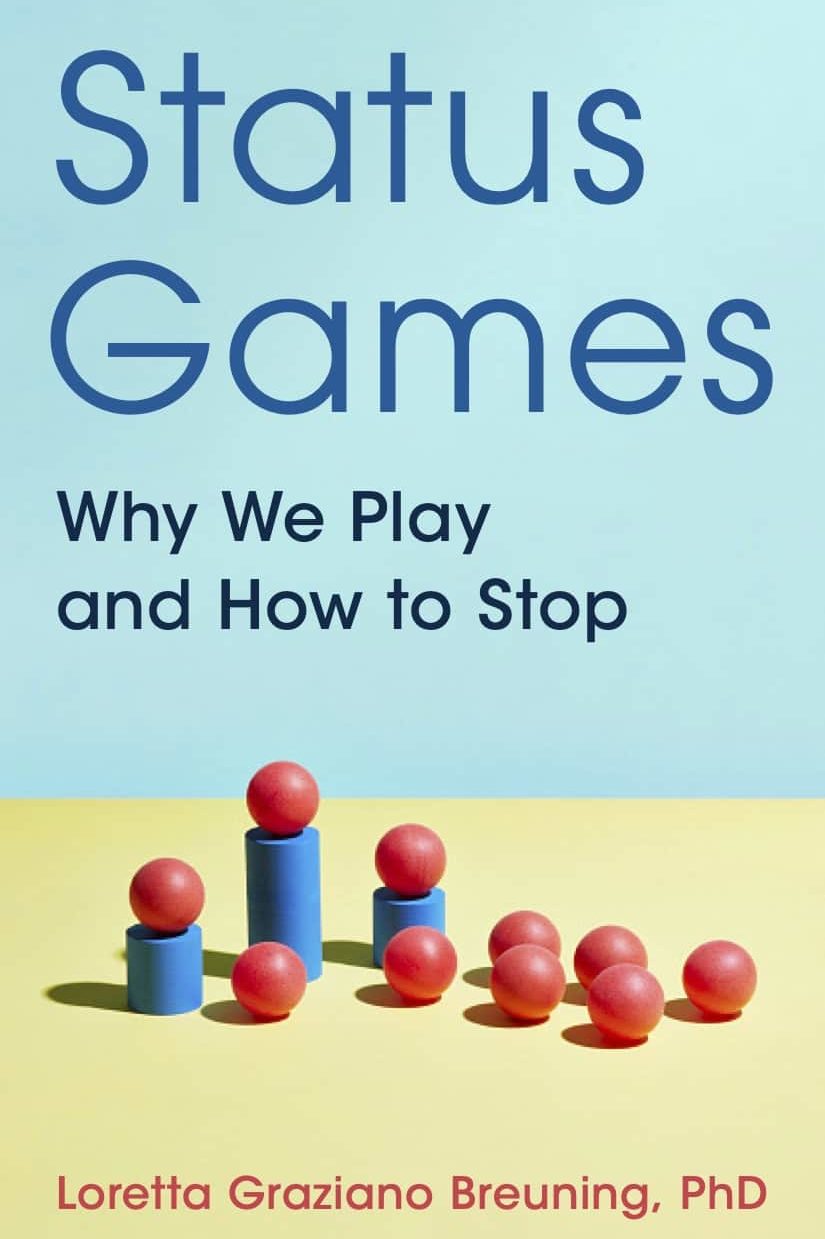Status Games:
Why We Play and How to Stop
(podcasts and free resources below)
Your serotonin is released when you see yourself as stronger than the monkey next to you. But it’s soon metabolized, so you need to see yourself as the stronger monkey again to get more. This mammalian one-up impulse explains all the frustrations of life! My new book gives you the biology, the history, and a new way to manage it.
People care about status despite their best intentions because our brains are inherited from animals who cared about status. This simple explanation of your mammalian operating system empowers you to redirect it and just relax.
– It explains what triggers serotonin and cortisol in the state of nature.
– It traces the mammalian urge for social comparison throughout history.
– It helps you stimulate more serotonin and relieve cortisol the natural way.
Today’s romantic view of animals obscures a century of research on mammalian status conflict and the brain chemistry that prompts it. Here is a simple explanation of your mammalian operating system, so you can redirect it and just relax.
Beneath your verbal brain, you have the brain common to all mammals. It rewards you with serotonin when you see yourself in a position of strength, and it alarms you with cortisol when you see yourself in a position of weakness. Serotonin is not aggression– it’s calm confidence in your ability to meet your survival needs in a world of rivals.
To see how this works, imagine you’re a monkey waking up hungry in the morning. You don’t have a refrigerator or a supermarket, so you look around for something to eat. You see a delicious ripe fruit, but it’s near a bigger individual. Your brain releases cortisol because you were bitten when you reached for a resource near a bigger monkey in the past. So you scan for another fruit, and when you see a chance to be in the one-up position, your brain releases serotonin. Now you feel confident and take action.
This is not what you tell yourself in words because the mammalian limbic system cannot process language.
This is not what you’ve heard about serotonin. Your information has been filtered through the disease model, which suggests that an effortless flow of serotonin is the norm. A close look at nature proves otherwise. The brain built by natural selection makes social comparisons constantly. The chemicals that make us feel good evolved to motivate action, not to flow all the time for no reason. They turn on in short spurts and then turn off, so you always have to do more to get more. This makes life frustrating for everyone.
It may seem like you will be effortlessly happy if you become a bigger monkey, but the serotonin never lasts. When you know how you produce this frustration, you have power over it! You can build new thought loops to enjoy more strong, confident feelings and relieve weak, threatened feelings. You can make peace with your inner mammal and your fellow humans when you know how your brain works. This book shows you how.
Slideshow
Free Sample
Press Release
Podcasts:
Serotonin, Status Games …and how to stop playing them
How to Stop Anxiety Related Approval/Status Seeking with Loretta Breuning, Ph.D.
Different Road – Status Games: Why We Play and How to Stop
Screen Addictions: Porn, Gaming, Etc
Life in the Middle Lane: One-on-One Interview with Dr. Loretta Breuning from the Inner Mammal Institute
Live Q & A
Radio:
The Social Comparison Effect w Dr Loretta Breuning
Articles:
Cornell University:
The Roots of ‘Status Games’—and Why Your Brain Is Stuck in High School
The best books on status anxiety
Co-Working:
Boost Productivity by Understanding Your Natural Urge for Status
Status Games:
Why We Play & How to Stop
(podcasts and free resources below)
Your serotonin is released when you see yourself as stronger than the monkey next to you. But it’s soon metabolized, so you need to see yourself as the stronger monkey again to get more. This mammalian one-up impulse explains all the frustrations of life! My new book gives you the biology, the history, and a new way to manage it.
People care about status despite their best intentions because our brains are inherited from animals who cared about status. This simple explanation of your mammalian operating system empowers you to redirect it and just relax.
– It explains what triggers serotonin and cortisol in the state of nature.
– It traces the mammalian urge for social comparison throughout history.
– It helps you stimulate more serotonin and relieve cortisol the natural way.
Today’s romantic view of animals obscures a century of research on mammalian status conflict and the brain chemistry that prompts it. Here is a simple explanation of your mammalian operating system, so you can redirect it and just relax.
Beneath your verbal brain, you have the brain common to all mammals. It rewards you with serotonin when you see yourself in a position of strength, and it alarms you with cortisol when you see yourself in a position of weakness. Serotonin is not aggression– it’s calm confidence in your ability to meet your survival needs in a world of rivals.
To see how this works, imagine you’re a monkey waking up hungry in the morning. You don’t have a refrigerator or a supermarket, so you look around for something to eat. You see a delicious ripe fruit, but it’s near a bigger individual. Your brain releases cortisol because you were bitten when you reached for a resource near a bigger monkey in the past. So you scan for another fruit, and when you see a chance to be in the one-up position, your brain releases serotonin. Now you feel confident and take action.
This is not what you tell yourself in words because the mammalian limbic system cannot process language.
This is not what you’ve heard about serotonin. Your information has been filtered through the disease model, which suggests that an effortless flow of serotonin is the norm. A close look at nature proves otherwise. The brain built by natural selection makes social comparisons constantly. The chemicals that make us feel good evolved to motivate action, not to flow all the time for no reason. They turn on in short spurts and then turn off, so you always have to do more to get more. This makes life frustrating for everyone.
It may seem like you will be effortlessly happy if you become a bigger monkey, but the serotonin never lasts. When you know how you produce this frustration, you have power over it! You can build new thought loops to enjoy more strong, confident feelings and relieve weak, threatened feelings. You can make peace with your inner mammal and your fellow humans when you know how your brain works. This book shows you how.
DOWNLOAD FREE SAMPLE
Press Release
Slideshow
Podcasts:
Serotonin, Status Games …and how to stop playing them
How to Stop Anxiety Related Approval/Status Seeking with Loretta Breuning, Ph.D.
Different Road – Status Games: Why we Play and How to Stop
Status & Screen Addictions: Porn, Gaming, Etc
Life in the Middle Lane, w Dr. Loretta Breuning
Live Q&A
Video Audio
Articles:
Cornell University:
The Roots of ‘Status Games’—and Why Your Brain Is Stuck in High School
The best books on status anxiety
Substack:
Status Games: Why We Play and How to Stop
Co-Working:
Boost Productivity by Understanding Your Natural Urge for Status
Radio:
The Social Comparison Effect with Dr Loretta Breuning
Top reviews
Dr. Breuning offers a captivating perspective on the biological origins of status seeking, offering us practical tools to manage this natural impulse instead of treating it as a taboo. A must read for anyone seeking greater emotional peace.
I was struck by the simplicity of the explanations in this book – but even more so, by the author’s prescient observations on the “real” reasons for people’s actions.
I could see the flow and analyse my own emotions after gaining understanding of different neurochemicals and their impact on our brains. Amazing work by Ms. Loretta.
Top reviews
Dr. Breuning offers a captivating perspective on the biological origins of status seeking, offering us practical tools to manage this natural impulse instead of treating it as a taboo. A must read for anyone seeking greater emotional peace.
You may also interested in

Tame Your Anxiety
Rewiring Your Brain for Happiness
Anxiety is natural. Calm is learned. If you didn’t learn yesterday, you can learn today. Animals stay calm in a world of potential threats because they focus on their next step. Humans have a big cortex designed to anticipate threats. It terrifies your inner mammal. Instead, you can focus your big cortex on the joy of your next step. Here’s how.

The Science of Positivity
Stop negative thought patterns by changing your brain chemistry
Negativity is natural because our brain evolved to scan for threats. Past frustrations wired your brain to find new frustrations. You can rewire yourself to find positives to balance this natural negativity. You can do it in 6 weeks with just 3 minutes a day, no matter where you are in life. You will train your brain to find the good as skillfully as it now finds the bad.
You may also interested in




